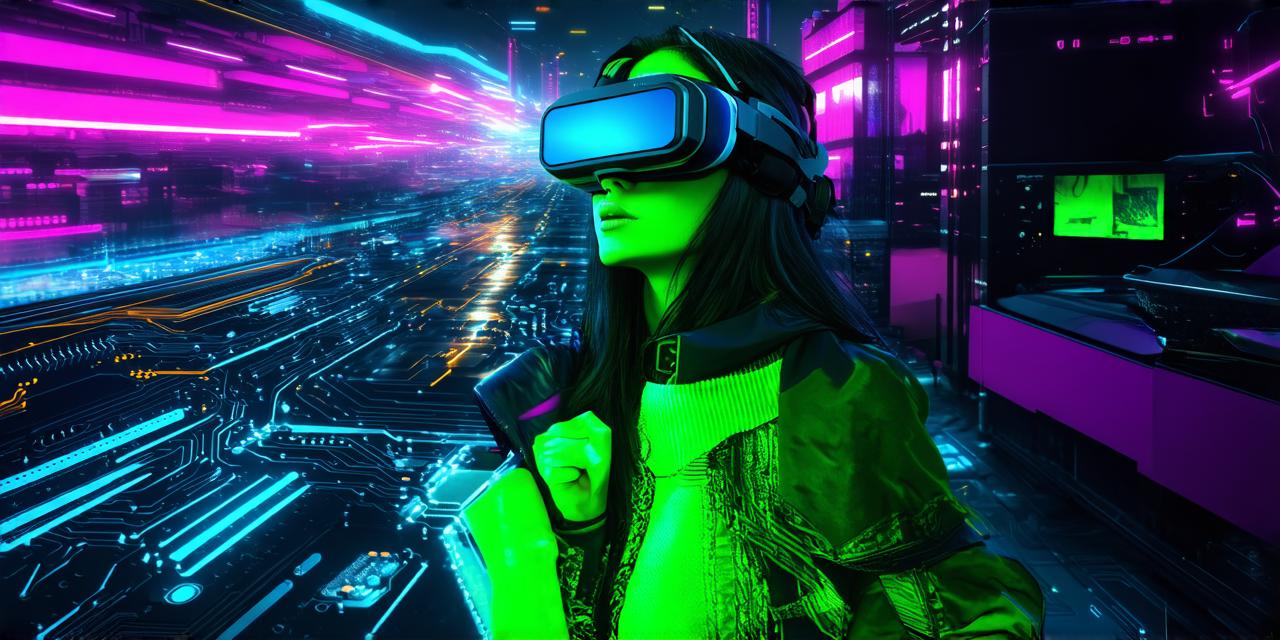
How are virtual reality and human perception interconnected?
Virtual reality (VR) technology is rapidly evolving, and its potential to revolutionize how we perceive and interact with the world around us is immense. VR can simulate immersive environments that allow users to experience things they might not otherwise be able to, such as exploring a distant planet or being in the middle of a bustling city.
Human perception is complex and multifaceted, shaped by our sensory inputs, past experiences, and cognitive biases. Perception involves interpreting sensory information to create meaning and understanding about the world around us. VR technology can manipulate our senses in ways that were previously impossible, creating a new frontier for exploring the depths of human perception.
One of the most significant challenges facing virtual reality developers is ensuring that the virtual experiences they create are realistic and believable. This requires a deep understanding of how human perception works and how to manipulate it to create immersive and engaging virtual environments. For example, studies have shown that our brains process visual information in ways that can be exploited by VR technology.
By presenting visual cues that mimic natural sensory inputs, such as depth cues and lighting, VR developers can create a sense of presence and realism that is difficult to distinguish from reality.
However, the relationship between virtual reality and human perception goes beyond creating realistic experiences. In fact, research has shown that our perception of virtual environments can have real-world consequences.
For example, a study by Banks et al. (2018) found that users who spent 30 minutes in a VR environment that simulated a natural outdoor setting reported feeling more positive and less stressed than those who spent the same amount of time in a traditional office setting.
This raises important questions about how we can harness the power of virtual reality to improve mental health and wellbeing. For example, could VR therapy be used to treat conditions such as anxiety or depression by creating immersive experiences that help users confront and overcome their fears? The potential for VR to enhance our perception and understanding of the world around us is vast, and the possibilities are only beginning to be explored.
It is important for virtual reality developers to understand the complex relationship between VR technology and human perception. By developing an in-depth understanding of how our senses process information and how our brains create meaning from that information, developers can create virtual experiences that are not only realistic but also have real-world benefits.

In conclusion, virtual reality and human perception are interconnected in complex ways. As VR technology continues to evolve, it is important for developers to stay up-to-date with the latest research and best practices in order to create immersive and engaging experiences that can improve our understanding of the world around us. With careful consideration of the relationship between VR and human perception, the possibilities for using VR technology to enhance mental health and wellbeing are vast and exciting.
FAQs:
1. How does virtual reality technology manipulate human perception?
Virtual reality technology can manipulate our senses in ways that were previously impossible, creating a new frontier for exploring the depths of human perception. By presenting visual cues that mimic natural sensory inputs, such as depth cues and lighting, VR developers can create a sense of presence and realism that is difficult to distinguish from reality.
2. Can virtual reality therapy be used to treat conditions such as anxiety or depression?
Virtual reality therapy has shown promise in treating conditions such as anxiety and depression by creating immersive experiences that help users confront and overcome their fears. The potential for VR to enhance our perception and understanding of the world around us is vast, and the possibilities are only beginning to be explored.


